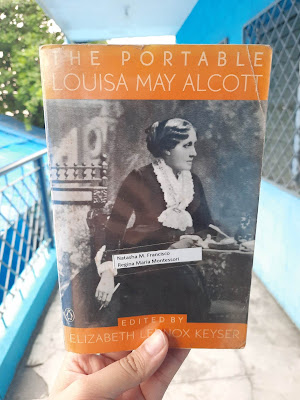 The Filipino Christ and the Historical Jesus by Michael Demetrius H. Asis
The Filipino Christ and the Historical Jesus by Michael Demetrius H. AsisMy rating: 4 of 5 stars
There is a profound link between the Jesuits and nation-building in the Philippines. Yesterday we celebrated the death of our national hero, Jose Rizal. A visit to his place of exile, Dapitan, and its neighbor, Dipolog, made me realize just how intimate the connection between the Jesuits and Rizal was. Both cities' parish churches were founded by Jesuits, who formed the social consciousness of the man who invented the very concept of the Filipino nation. Until now, an altar carved by Rizal is used in Dipolog's church, while in the Dapitan church's garden is a map of Mindanao drawn by Rizal himself.
My father, himself Jesuit-educated before studying at the state university (the running joke about people with similar backgrounds is that they got the best from the separation of church and state, hehe), carved the Jesuit motto in the front door of our school's faculty room: "Ad majorem Dei gloriam." (For the greater glory of God)
Physical signs matter because they remind us of the living message of heroes and gods past. This was a theme present in this firebrand of a book.
Part of my annual examen on this last day of 2022 was reading this short scholarly book by Prof. Asis from the Theology Department of the Ateneo, the foremost Jesuit educational institution in the country.
Concise yet accessible, it's short enough to be read over a very long breakfast! Written in layman-friendly language so an ordinary reader like myself had no trouble, this was a book-length analysis of the challenge facing every Filipino Catholic today and always: why is "the only Catholic nation this side of the world" also one of its most morally corrupt?
This is a very brave book. Prof. Asis asks difficult questions, makes painful observations on clergy and laity alike.
"The prophetic function of the Church empowers it to denounce the many cases of abuse, violence, corruption, and injustice in society. But this prophetic task and vision should be the same benchmark by which the Church measures itself... Has it confronted the obvious evil of clerical sexual abuse and financial anomalies in the Church?"
"Why do Filipino Catholics, despite their inherent piety, seem to fail - essentially - to build up the Kingdom?"
"Filipinos will go to great lengths imitating Christ's passion but fail to live out his moral examples."
Prof. Asis presents the theses of other scholars (a glance at the bibliography show how universal he is, referencing both Catholic and non-Catholic authors) to present the merits and failings of the syncretism in Filipino Catholicism.
This is not finger pointing at the clergy only, but also a call for collective action. Enough with the passivity, Prof. Asis says. Enough with the separation of our Sunday selves from our daily lives, using liturgy and folk practices as escapism, imbibing the post-Colonial legacy of the martyrdom in accepting injustice on earth, while praying for Heavenly rewards.
Prof. Asis ends with a call to action, to live more heroic lives, to live out "bayanihan" as a "collective saving effort of the community." He also pointed out that Jose Rizal was called as the "Tagalog Christ." Just see the wonders he wrought in Dapitan! Instead of languishing in exile and indulging in self-pity, Rizal taught local boys for free, became doctor to the people, engineered water works that still stand today. He literally carved out a haven on earth, creating a heaven out of hell, as it were. And that challenge stands before all of us today.
"This is how salvation begins," Asis writes, with "the human exemplification of commitment to social welfare and development."
A proper examen should never end in despair, as Prof. Asis reminds us, "Jesus himself never explained why there was evil in the world. He did emphasize that it does not have the final word."
View all my reviews










.jpg)






